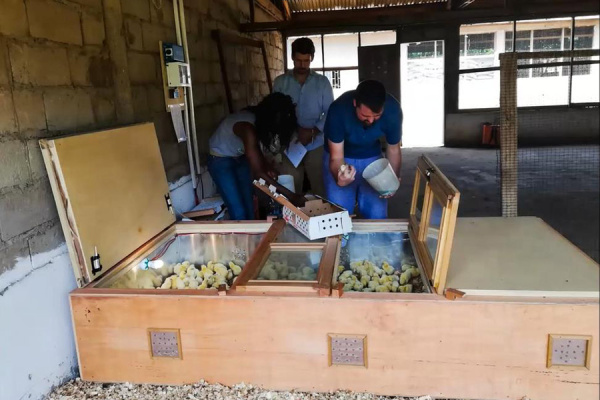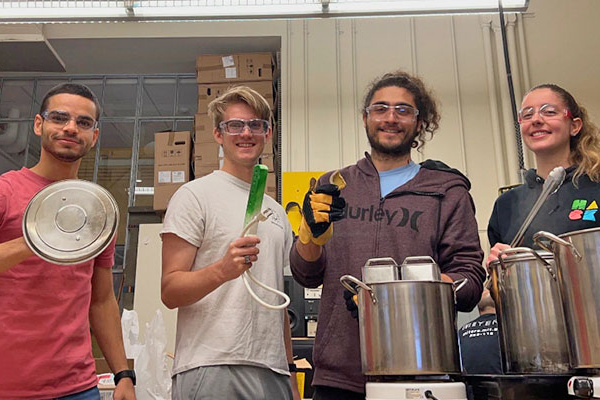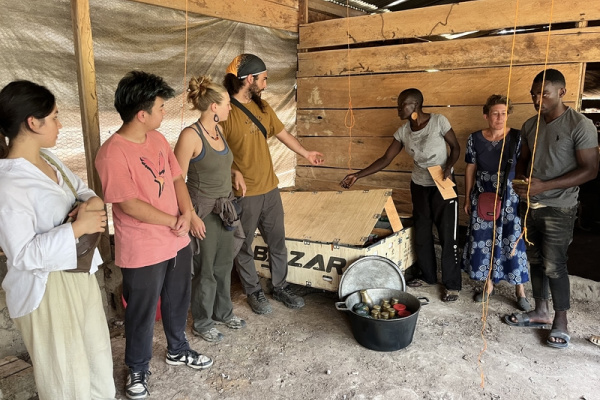Our Research Safe off-grid brooder for Cameroonian poultry farmers
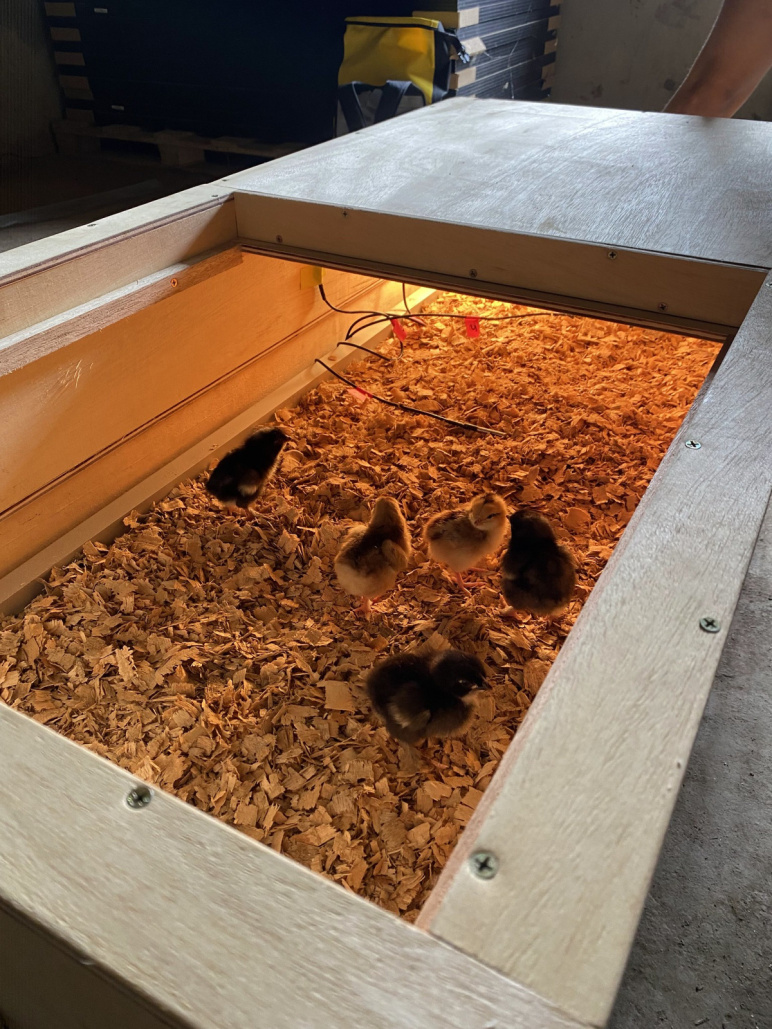
Chicks in the brooding box prototype
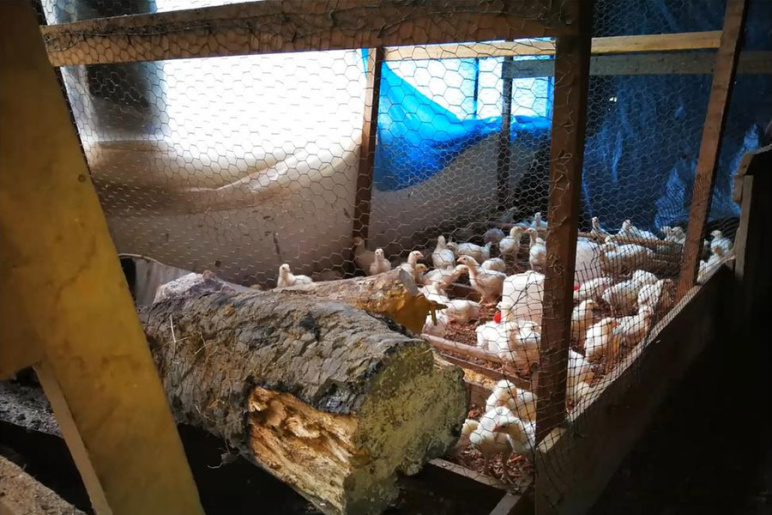
Traditional chicken brooding in Cameroon (credit: Antenna Foundation)
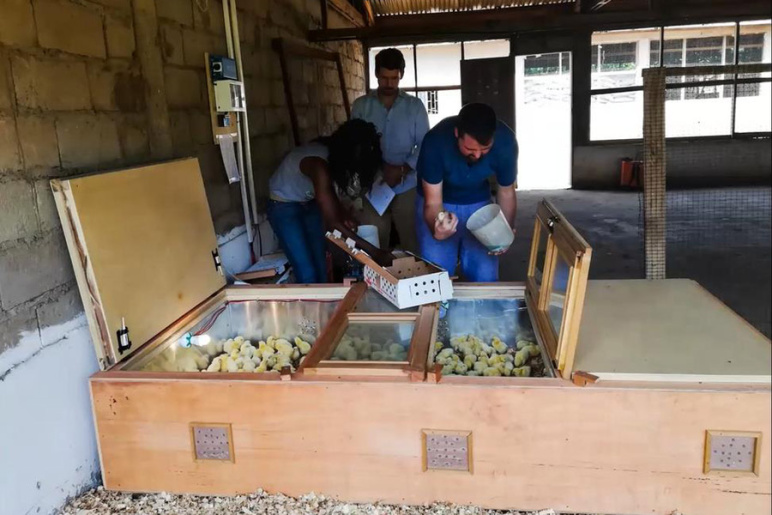
African Solar Generation (ASG) Solar Box testing in Cameroon (credit: ASG)
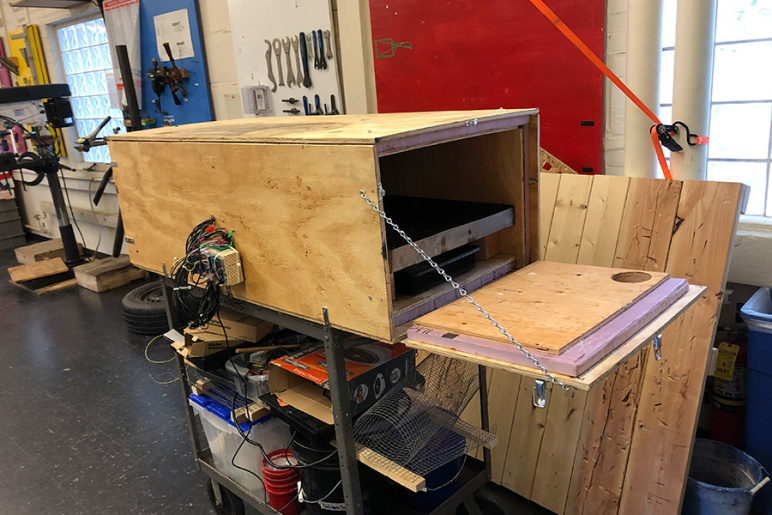
Spring 2022 D-Lab Energy class brooder prototype
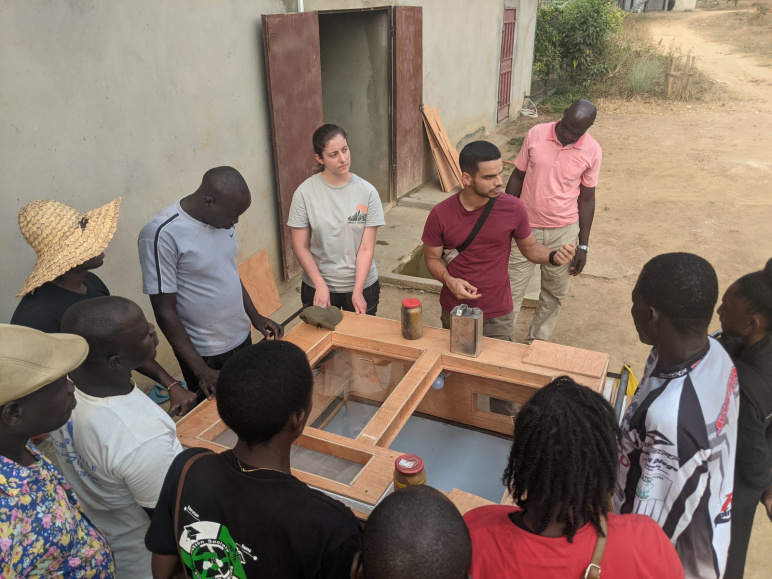
MIT D-Lab students Katana Finlason ‘23 and Aly Kombargi demonstrate the beeswax thermal batteries and Off-Grid Brooder to poultry farmers at BiObala Farm in Obala, Cameroon, credit Dan Sweeney
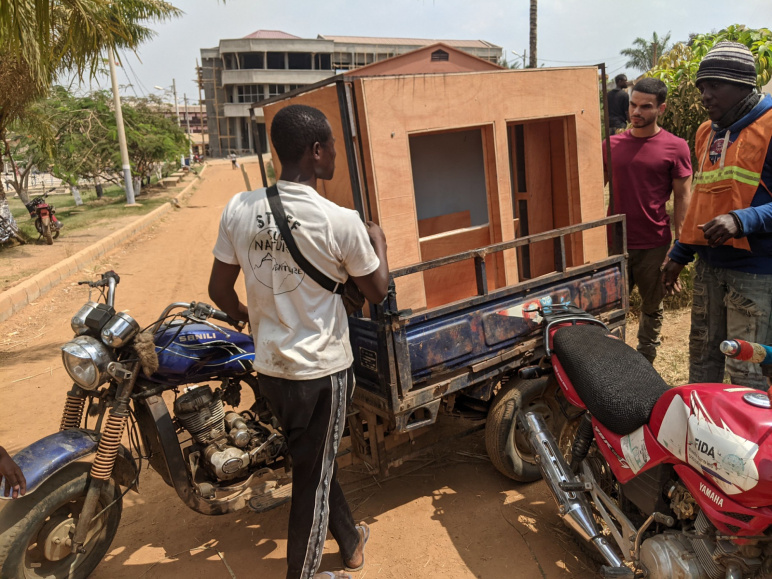
Transporting the Off-Grid Brooder v2 prototype from the workshop to BiObala Farm, Obala, Cameroon, credit Dan Sweeney
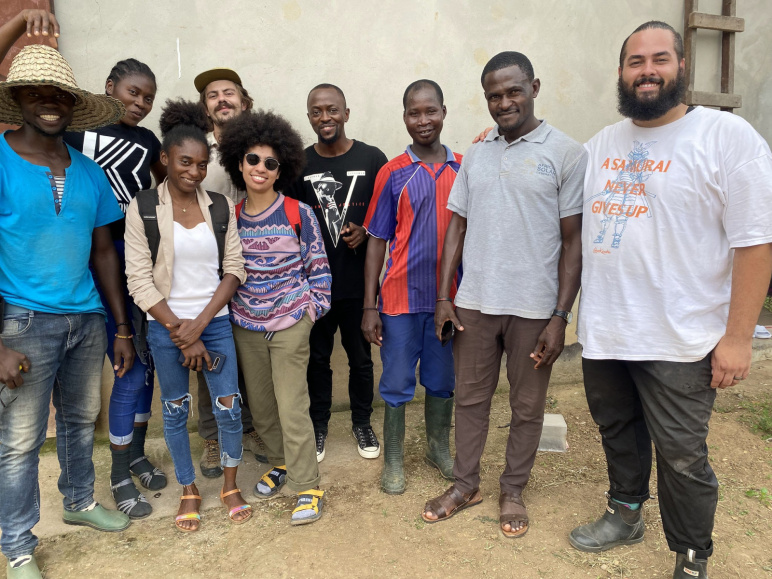
Ambre Delicap '23 and Joshua Maldonado '22 travel to Cameroon to collaborate on and advance design of chick brooder box warmed by PCMs.
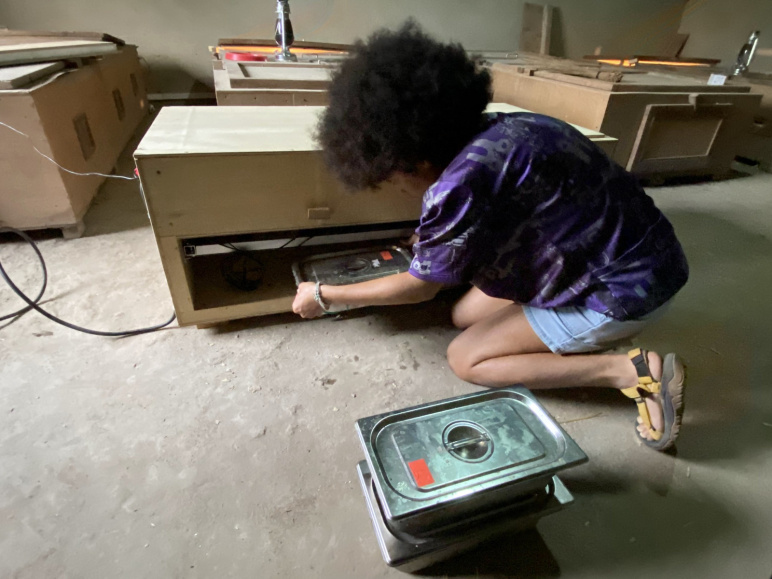
MIT D-Lab student Ambre Delicap ‘23 loads charged thermal batteries into the Off-Grid Brooder v1 prototype at BiObala Farm, Obala, Cameroon, credit Josh Maldonado
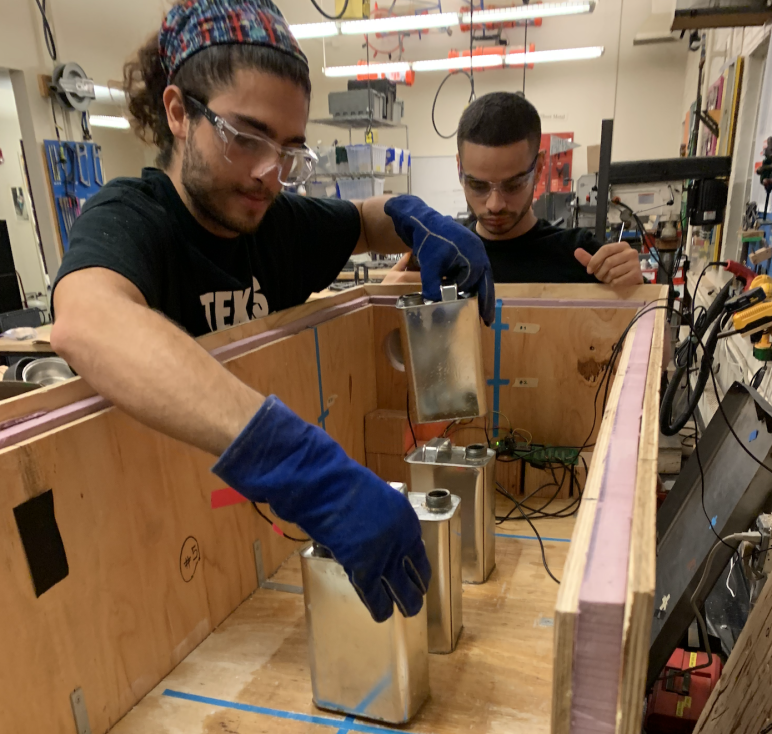
Students Ahmad Zakka and Aly Kombargi prepare a beeswax thermal battery test in the D-Lab Workshop, credit Katana Finlason
Principal Investigators
Challenge:
Can a safe, off-grid chicken brooder be designed to reduce losses and improve livelihood outcomes for poultry farmers in developing countries?
Research Strategy
- Use participatory design methods to engineer a safe and efficient off-grid brooder for smallholder poultry farmers in Cameroon
- Disseminate the off-grid brooder technology through the D-Lab and broader networks
Project description
Poultry is an inexpensive protein source that contributes to reducing malnutrition and generating income in rural communities. About 70% of the world’s estimated 16 billion poultry are in LMICs where demand is expected to nearly double in the next 20 years.
Newly hatched chicks cannot control their body temperature in the first few weeks of life, so a heated enclosure called a brooder is used to keep chicks warm. Aside from feed, the major input for rural poultry farmers is firewood to supply heat to maintain a brooder temperature of 33-35°C, where electricity is not available. The economic risk of small-scale chicken brooding in Cameroon, Africa is due to the high expenditures during the early life of the brooder chick, the relatively high mortality rate, and the small profit margin on chicks that survive and reach the market.
This project will engage MIT students and community partners in a participatory design process to advance an off-grid brooder solution and test its efficacy during field demonstrations at small farms in Massachusetts and Cameroon. Given their predictable and isothermal heat output, phase change materials (PCMs) are well-suited for off-grid poultry incubation and brooder applications and are central to the proposed solution. An economical and appropriate PCM system will be designed, demonstrated and disseminated to solve challenges for smallholder poultry farmers.
Outcomes
- Established collaborative partnerships with BiObala Farm in Cameroon and Codman Community Farm in Massachusetts
- Conducted two extended trips to Cameroon to work with African Solar Generation, L'Institut Supérieur d'Agriculture d'Obala, and BiObala Farm, where the team worked with poultry farmers to gain a better understanding of their needs, culture, and the logistics of implementing the project there
- Developed and tested phase change materials like beeswax to act as thermal batteries, which allows heat to be stored in vessels and released over a period of 6 to 18 hours to maintain the desired brooder temperature
- Built and tested two working prototype brooders at BiObala Farm in Cameroon with capacities for 50 and 100 chicks, equipped with custom off-grid instrumentation to monitor use and performance
News
Additional Details
Impact Areas
- Food
- Climate & Sustainability
Research Themes
- Sensors & Monitoring
- Technology & Commercialization
- Sustainability & Adaptation
- Economics, Policy, & Practices
- Transforming Food Systems
- Equity & Access
Year Funded
- 2022
Grant Type
- Other
Status
- Completed


